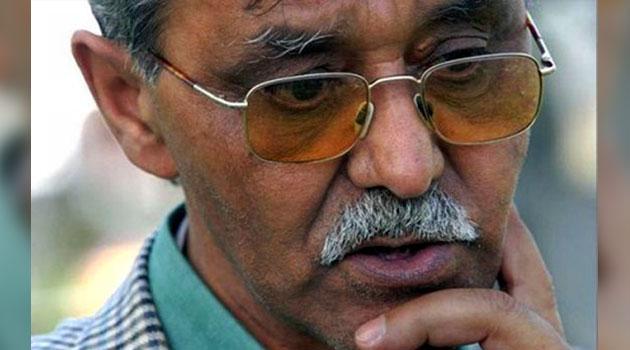Czech Republic: Romani Holocaust survivors' association chair says he has no reason to doubt pig farm will go

At the beginning of this week the Czech Government approved a proposal to close the operations of the pig farm located on the site of the former concentration camp at Lety by Písek and has commissioned assessments of the valuation of the land. News server Romea.cz has asked Čeněk Růžička, a member of the Czech Government Council on Romani Community Affairs and chair of the Committee for the Redress of the Romani Holocaust in the Czech Republic (VPORH), how he views recent developments around the pig farm, which he has long striven to remove.
Since this interview was first published yesterday, Czech Human Rights Minister Dienstbier has in fact been dismissed. News server Romea.cz reported on that announcement here.
Q: What do you say to the most recent development around the pig farm in Lety by Písek and the most recent decision by the Government about its removal?
A: For the time being I do not have any reason not to believe it, but after all my experience with trying to get it removed, I am very cautious. I have heard rather a lot of promises already. It is a bit of a problem that Prime Minister Sobotka wants to dismiss a couple of his party’s ministers and that one of the ones he wants to remove is Human Rights Minister Dienstbier.
Q: Do you believe the dismissal of Minister Dienstbeir might influence the removal of the farm?
A: Certainly, yes. Members of the minister’s family also perished in a concentration camp and he perceives this to be a moral obligation. A pig farm on the site of a concentration camp, whatever kind of farm it is, has no business being there. I personally believe Mr Sobotka will not dismiss him, though. My opinion is the PM has done a “political move” to force the ministers to present themselves in the media more. It would be a shame if Mr Dienstbier were to be removed, because in my opinion he is defending human rights the best of any of the ministers I have experienced.
Q: Do you know any details about what phase the negotiations on removing the farm are in now?
A: I just know what was published after Finance Minister Babiš declared that Lety by Písek was just a labor camp. According to the published information, valuations are supposed to be produced, and then there is suppposed to be a negotiation with the owner of the farm, and then a collective decision will be taken by the Government of the Czech Republic.
Q: Do you believe it is realistic that the farm would be removed by the time this Government leaves office?
A: That’s the question. Mr Babiš told me that if the Government decides to move the farm, it will cover the costs. However, when I think about it, when he said he believed the concentration camp at Lety was really just a labor camp, he earned a mark against him as far as the relatives of the victims and survivors are concerned, and as far as society goes. That statement was heard in the rest of the European Union. I assume that he will win the next elections and become Prime Minister, and in that case, he might be able to influence the entire affair. Whoever manages to remove the farm should be nominated for the Nobel Prize, because all of the Governments have been promising it to us for 20 years already.
Q: In mid-October Romani people were able to begin applying for compensation for the damages they suffered as victims of the Holocaust during the Second World War. In what phase is that compensation process, how does it work?
A: It is agreed that the Romani people who hold certificates per Act No. 255/1946 Coll., will receive one-time compensation in the amount of EUR 2 555. I am currently negotiating with the German side about other compensation for Romani people per Act No. 261/2001 Coll., those who hold certificates from the Czech Social Security Administration who are entitled to having their pensions substantially increased. It is proven in those certificates that these people suffered during the Second World War. I have big hopes that the German side will respect that. In the beginning, the problem was that Germany was not able to estimate the numbers of possible applicants. When I began seeking those certificates per Act No. 255/1946 Coll., back in 2001, approximately 7 000 people applied for them, which was absurd. Germany was afraid of a big number of possible applicants as a result of that. According to my estimates, there might be around 20 applicants now, currently there are 18 that I know of.
